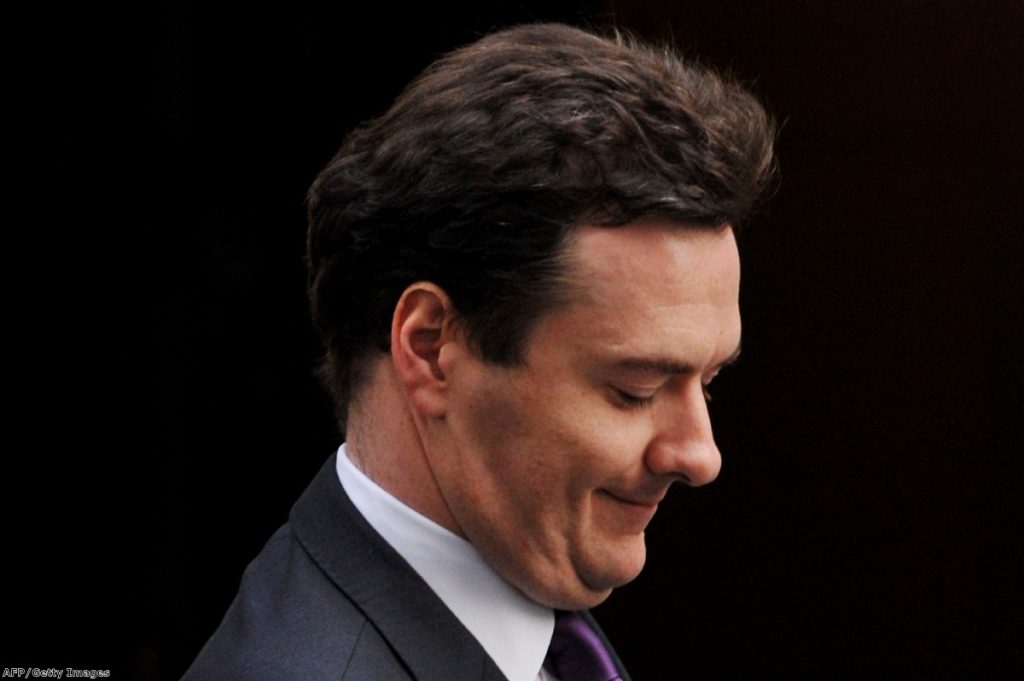The week in politics: Economic woe trumped by a bad joke
This week we learned the economy is nearly as far out of control as Jeremy Clarkson's sense of humour.
There was a lot of buildup to chancellor George Osborne's autumn statement. Usually this is supposed to be a mini-Budget, containing a few tweaks here and there, and a straightforward update to the government's economic forecasts. This year was different – because those forecasts were so ropey.
Hence the buildup: first details of a credit easing plan to help small businesses, and then news about bolstered infrastructure spending were released in advance, because spinners feared the day itself would be swamped by the bad news. Their strategy was the right one, for when Tuesday came Osborne's bleak outlook painted a pretty gloomy picture.
When the chancellor says it's a good thing that we've avoided recession, after downgrading growth predicitions for 2012 from 2.5% to just 0.7%, you know things aren't going well. Unfortunately MPs didn't quite see it like that. "Calamity gets the political juices flowing like nothing else," I wrote after watching the statement from the press gallery. "It was typical of the narrow partisanship on show in the Commons this lunchtime."


No sooner had the details sunk in than Wednesday morning had arrived. The public sector pensions strike was closer to being "historic", as the unions claimed, than it was to being a "damp squib", as the prime minister suggested. Around one million people are thought to have walked out of work – but, although schools suffered extensive disruption, the scale of the turmoil was nowhere near as bad as union leaders might have hoped.
This was all very important, all very newsworthy. Yet it was about to be blown out of the water, in news terms, by the remarks of a certain Jeremy Clarkson. "Frankly, I'd have them all shot," he said on BBC1's The One Show. "I would take them outside and execute them in front of their families."
The Top Gear presenter was not being unusually unpleasant. This is what he does, after all: a very bombastic sort of sarcasm which, on this occasion, was a little too subtle for the great British public to grasp. It was not obviously a joke. So the entire nation chose to take offence.
"The new British love for outrage is threatening to turn us into a country of humourless, po-faced robots, spluttering angry denunciations at anyone who expresses an unusual idea or a cruel joke," politics.co.uk's editor Ian Dunt wrote. For some reason this argument didn't get much traction with over 21,000 people, who complained to the BBC. Labour were especially grumpy about it.
Clarkson eventually issued an apology, but the damage had been done: everyone had well and truly forgotten about the state of the economy. This was the week when an outrageous comment trumped a 'historic' strike. Such is the power of the media in the 21st century – a beguiling topic which happened to be the subject of a judge-led inquiry taking place at the royal courts of justice this week.
The Leveson inquiry, of course, is investigating the 'culture' of the press as well as its many wrongdoings. The phrase "jaw-dropping" rarely appears in politics.co.uk headlines. But it certainly seemed apt when one unreconstructed hack claimed that 'privacy is for paedos'. Elsewhere, Tony Blair's former spin doctor Alastair Campbell offered an outspoken attack on the "putrid" media. This week also saw an allegation emerge that former Cabinet minister Peter Hain's computer had been hacked into by journalists while he was Northern Ireland secretary.
— Alex Stevenson Follow @alex__stevenson

